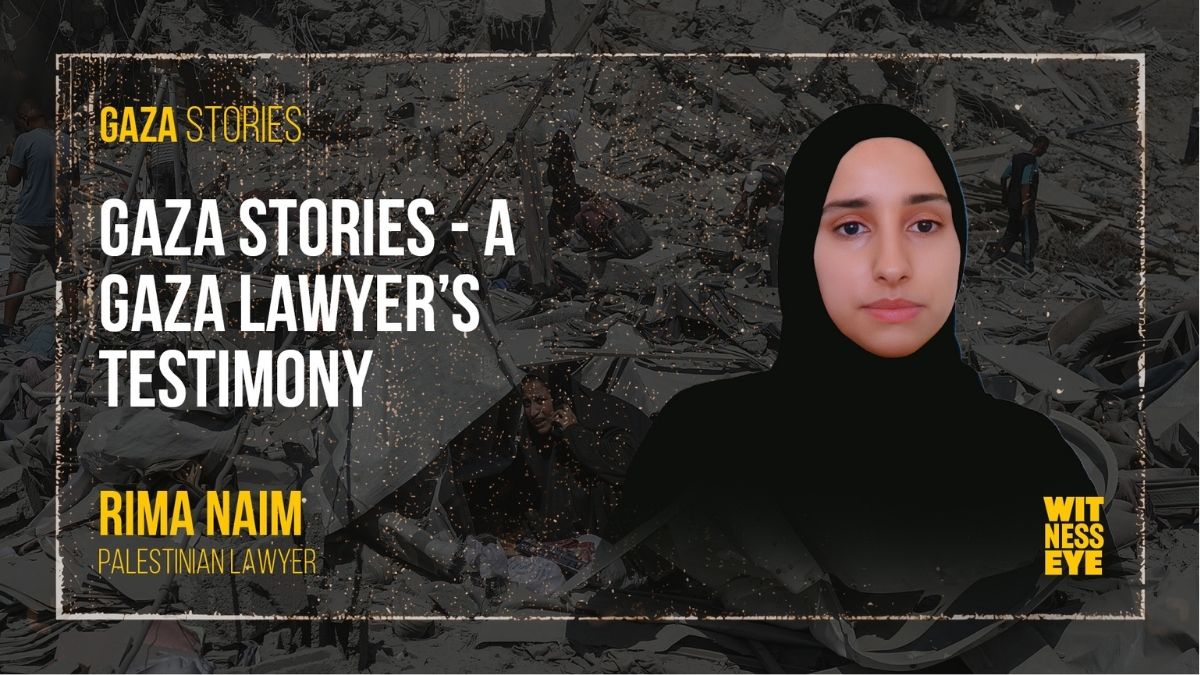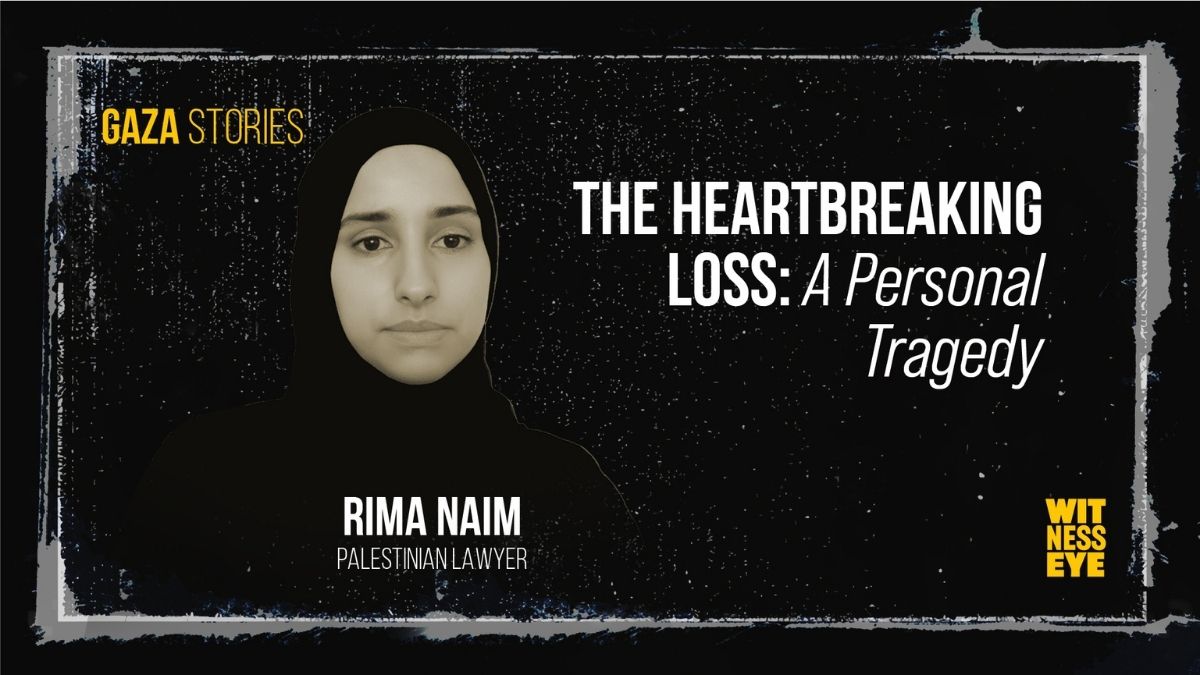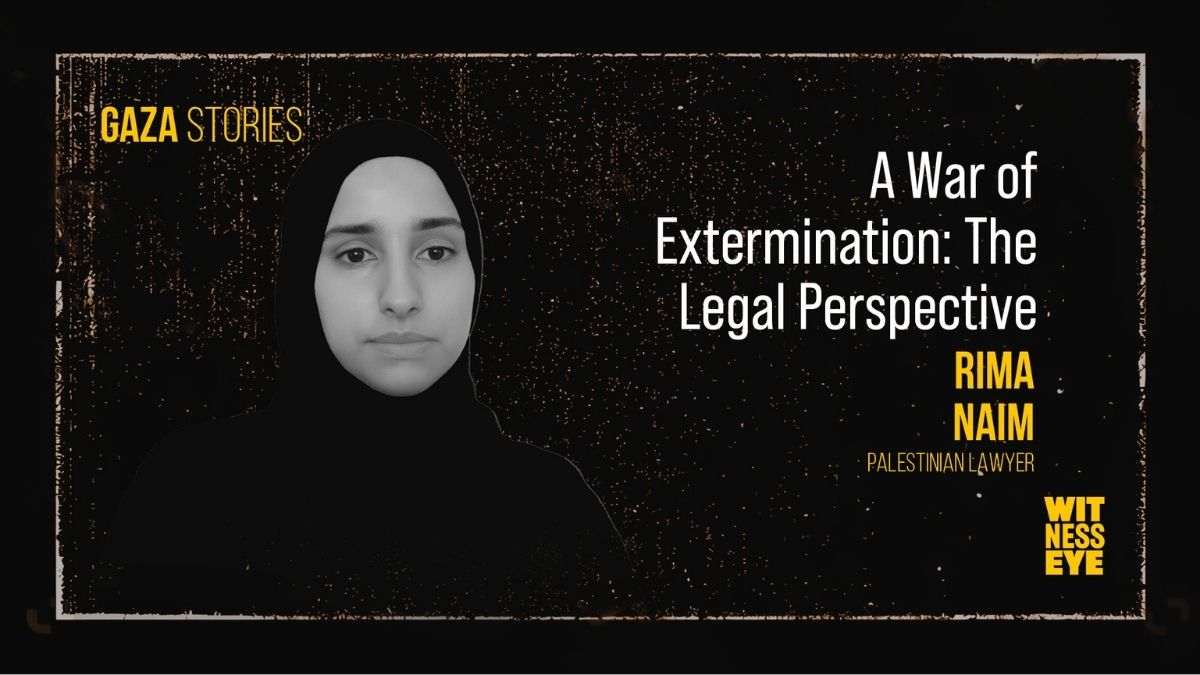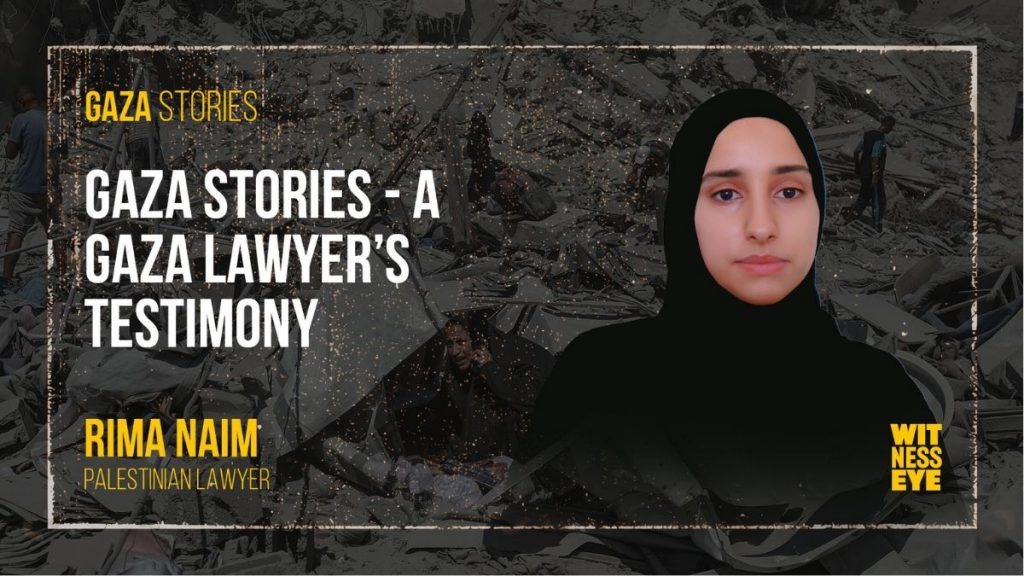
In the heart of conflict, where the very essence of humanity is threatened, from the Gaza Stories resonate with pain, resilience, and a demand for justice. Rima Naim, a dedicated lawyer and advocate for the victims of war, stands at the intersection of legal advocacy and personal loss. Her family’s experience during the Gaza war of 2024 serves as a heartbreaking testament to the brutality of the conflict. Through her voice, the world hears not just of her own suffering but also of the countless lives lost and the efforts to document these atrocities for future justice.

The Heartbreaking Loss: A Personal Tragedy
“The largest part of them were in the north, and they were forced to flee south or to central Gaza due to the intensity of the bombings,” she recalls. Yet no place was safe. For Rima, the horrors of war struck closest to home.
Among them was her elderly grandmother, who, at 87 years old, had lived longer than the occupation itself.
“My cousins, Dr. Samah and Dr. Shayma, both dentists, and their sister Batoul, who was just seventeen years old, were all killed,” she recalls. The youngest victims were the children—Tayseer, just four years old; Laya, a mere two years old; and Lara, who was only eight months old at the time.
The tragedy didn’t stop with the loss of life. As Rima explains, the targeting of her family was particularly cruel. Despite fleeing to what was supposed to be a safe area, Deir al-Balah, they were bombed in their new refuge. “They fled following the occupation’s instructions to move to a safer place, but they were still targeted,” Rima explains, highlighting the senseless nature of the violence. This, in her view, exemplifies the nature of war crimes and genocide in Gaza.

A War of Extermination: The Legal Perspective
Rima’s role as a lawyer has evolved dramatically since the beginning of the war. While her initial aspirations as a human rights advocate focused on legal reform and social justice, the extent of the violence in Gaza has made her work both deeply personal and professionally daunting. In conversation with us, she explained the stark difference between previous wars and the recent one: “In each war, the targeting was somewhat understandable—resistance groups were often the targets. But this time, it was an outright extermination of civilians.”
The strategy, as Rima sees it, has been simple: the occupation aimed to eliminate Gaza’s population entirely. “Hospitals, schools, homes—these were not just collateral damage. They were targeted because the occupation decided to wipe out any and all civilians,” she states. The deliberate targeting of civilian infrastructure, including essential services like healthcare and water supplies. İt is a clear violation of International Humanitarian Law, and it underscores the nature of genocide. The continuous violence in Gaza is not simply a series of isolated attacks, but a systematic attempt to destroy a people, a culture, and a society.
Eyewitness Testimonies: Legal Documentation and the Path to Justice
Collecting testimonies from victims of the war, particularly survivors like Rima, is a fundamental aspect of her work. The testimony of victims is crucial not only for documenting the atrocities but also for laying the groundwork for legal accountability. Rima has worked with several international organizations to gather eyewitness testimonies and has faced significant challenges in doing so. Many of the survivors she has worked with have been women and children, the most vulnerable members of society, and many were caught in the crossfire of violence with no clear military targets in sight.
The difficulty of gathering such testimonies, Rima explains, is twofold. “But the difficulty doesn’t end with the initial documentation,” Rima notes.
“Many survivors are hesitant to speak out for fear of retribution or due to the overwhelming trauma they have endured.” -Gaza Stories-
Nevertheless, Rima continues to fight for justice. She believes that the testimonies and legal accountability casescollected now will form the backbone of future legal action against those responsible for the war crimes. Through these efforts, there is hope for justice, however distant it may seem.

Gaza Stories – The Struggle for International Justice
Despite the mounting evidence of war crimes, genocide, and human rights violations, Rima remains cautiously optimistic about the potential for international justice. “There is a possibility that we can somehow reach a better point than this,” she states. “But the path is difficult, and the legal framework around Gaza is fragile at best.”
Rima is particularly critical of the international community’s selective stance when it comes to justice for Palestinians. “Israel uses international law to justify its actions, claiming self-defense even as it commits widespread atrocities,” she observes. “But the facts speak for themselves—civilians, children, and non-combatants have been disproportionately targeted and killed.” As Rima explains, “The world will never hear the full truth unless we present it in the legal language that they understand.” – Gaza Stories –
The Weapon of Starvation: A Silent Killer
One of the most insidious aspects of the war on Gaza has been the weaponization of starvation. Rima vividly remembers how, even in families that were once financially stable, basic food items became scarce.
“My family in Gaza, considered well-off, was reduced to searching for a piece of bread or a bag of flour for days,” she recalls. “Even with money, you couldn’t find anything to buy because the shops were empty.”
The weapon of starvation, Rima argues, is not just a result of the blockade and the closure of supply lines. It is part of a deliberate strategy to force Gaza into submission. “The occupation has targeted not just the people but their very survival,” she says.

Gaza Stories – The Legal Road Ahead
Rima’s efforts are part of a larger movement to bring legal accountability to those responsible for the atrocities in Gaza. As a legal expert, she continues to work tirelessly to document these war crimes and push for justice in international courts. Yet, as she points out, this journey is far from easy. The difficulties in communicating with international bodies, the lack of political will, and the challenge of presenting these cases in a global legal framework all contribute to the delay in seeking justice.
But Rima remains resolute. “The road to justice is long, but it is not impossible,” she says. “We have the evidence, and we have the truth. Now, it is up to us to ensure that the world listens.”
Now, hear the testimony of Rima Naim in her own words—lawyer, survivor, witness—carrying Gaza’s grief, memory, and unyielding call for justice into the record of history.
